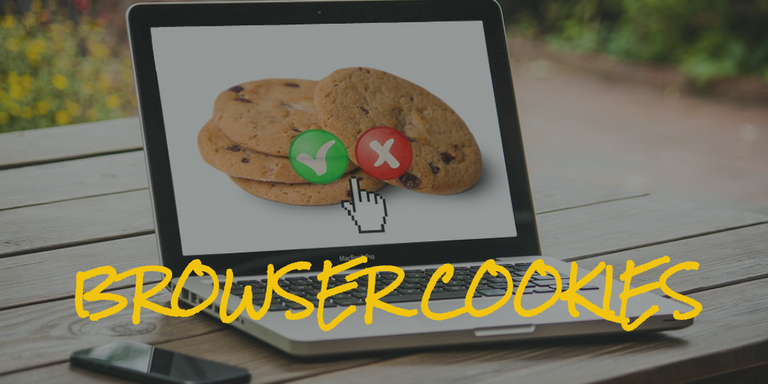Browser Cookies– Part 1: What Are They?

This is Part 1 of what is going to be an eight-part series on browser cookies. In these posts we will cover the following:
- Part 1 – What Are They?
- Part 2 – How to Clean Them from Google Chrome
- Part 3 – How to Clean Them from Internet Explorer & Microsoft Edge
- Part 4 – How to Clean Them from Firefox
- Part 5 – How to Clean Them from Opera
- Part 6 – How to Clean Them from Mac Devices with Safari
- Part 7 – How to Clean Them from Smartphones: iOS and Android
- Part 8 – Tools to Clean Your Browser
This post will cover what cookies are, the different types, what they can do.
Cookies are the internet’s rodents; they are tracking you and your routines. They also produce a few of the most irritating pop-up notifications the internet ever encountered. In this post, we will show you what cookies are, the types, how to remove, and manage them effectively, protecting your privacy moving forward.
What is a Browser Cookie?
Cookies are tiny data files that websites use to store information. Much of the information track your browsing behavior. These files contain data on your web surfing, as an example:
Previously Accessed Web Pages
The cookies can (though not every time) log pages visited on specific sites, its own originating site and external web sites. For instance, cookies save items you viewed when at Facebook Marketplace, Amazon, eBay, or airlines and vacation packages you explored on Travelocity.com, Expedia.com, Booking.com, etc.
Website Login Data
Cookies can store personal details, including usernames, addresses, language settings, and billing data.
Statistical Website Tracking
Merchants want to learn how the visitor discovered the website and track their path to and from their website. Their aim is to enhance the site by enhancing the customer experience.

BROWSER COOKIES ARE NOT ALL BADBrowser Cookies Are Not All Bad
Cookies occasionally get a bad rap but are not fundamentally bad. For instance, session information gathered on an e-commerce site allows you to avoid re-entering data. If there are no cookies, you'll lose things placed in your shopping cart.
Another use of cookies is far more challenging. One thing is a question of computer performance; a little too much may slow your computer. More pressing, for most individuals, is an issue of privacy or confidentiality. Cookies may follow you across sites. So, if you perused the web for the new Nintendo device on Amazon.com, other sites would be able to access this cookie data and serve you ads specific to that device or devices like it, along with related items. If you are interested in those related goods, that's okay; if you are not, they might seem invasive.
There are several different types of cookies. You don't need to understand every one of them. However, understanding the fundamental technology is going to help, particularly before deleting them at will.
Nearly all the stuff you run into is the typical HTTP cookies. These are also referred to as web cookies, session cookies, or browser cookies. They are stored by sites that you visit through the web browser, like Edge, Opera, Chrome, or IE. You can totally clear out the cookies from the computer following a reasonable time. You will be able to clean these out separately and hold the cookies that give you a private benefit.

Types of Browser Cookies
There are several other types of cookies. A few of them follow:
Secure cookies
Secure cookies are just plain ordinary cookies that have been transferred using a secure HTTPS connection. If your connection isn’t safe, a cookie will not be transferred, and therefore can't be read by a third party. Although this makes them a little bit safer than standard cookies, stored content inside them even may contain private data, and thus these must be deleted routinely.
Third-party cookies
These are most insidious. Third-party cookies do not originate from site you are visiting but it's frequently a totally separate realm.
For instance, if you are visiting https://yourfavoritewebsite1.com and that website places a cookie, it’s a first-party cookie as described further below. Nevertheless, this cookie might also originate from https://NOTyourfavoritewebsite2.com. This might easily take place when https://yourfavoritewebsite1.com is using the ads which are fed from https://NOTyourfavoritewebsite2.com into that alternative domain.
Flash cookies
Websites that use old Flash technology could store different types of cookies. They are generally difficult to locate because the data is deposited in a different location. Also, they may contain much more data: the maximum of around 100 KB.
Flash cookies are a component of the “super-cookie” group. Those are the cookies that are collected outside of your internet browser. Besides collecting conventional cookie data like cached login details, “super-cookies” can save consumer behavior, among them visited sites and time spent on every single one.
This becomes attractive for the advertisers. Notoriously, Verizon utilized “super-cookies” on its mobile device users in order to push targeted advertising without notifying users or even requesting consent. Over a $1 million fine followed prior to them backpedaling.
Why Should You Delete Browser Cookies?
Cookies are not necessarily all bad as you’ve found out in this piece but do contain private information and do make it feel like you're being hounded. As time goes by, you're going to pile up hundreds, if not thousands of cookies. To get rid of these are all part of your privacy sanitation.
Following the browsing of about four very popular sites (news, socials media, and tech companies) an unnamed browser collected over 194 cookies stored on a test computer, from only these four websites. When looking to the folder where the browser stored the cookies, the cookies have increased from around 1 to 224 KB.
This took place in just around 8-10 minutes of casually browsing the web. This is one of the very reasons you need to clean up the cookies routinely. You may not have to do this daily, but at least weekly.
You are now a Cookie Monster 😊
So far you have learned what they are, what they do, were stored, and in the next post in this series you will start learning how to remove them.
Posted from JoeBrochin.com with SteemPress : https://joebrochin.com/ - Part 7 – How to Clean Them from Smartphones: iOS and Android
This post has been voted on by the SteemSTEM curation team and voting trail. It is elligible for support from @curie and @minnowbooster.
If you appreciate the work we are doing, then consider supporting our witness @stem.witness. Additional witness support to the curie witness would be appreciated as well.
For additional information please join us on the SteemSTEM discord and to get to know the rest of the community!
Please consider using the steemstem.io app and/or including @steemstem in the list of beneficiaries of this post. This could yield a stronger support from SteemSTEM.
Hello joebrochin!
Congratulations! This post has been randomly Resteemed! For a chance to get more of your content resteemed join the Steem Engine Team